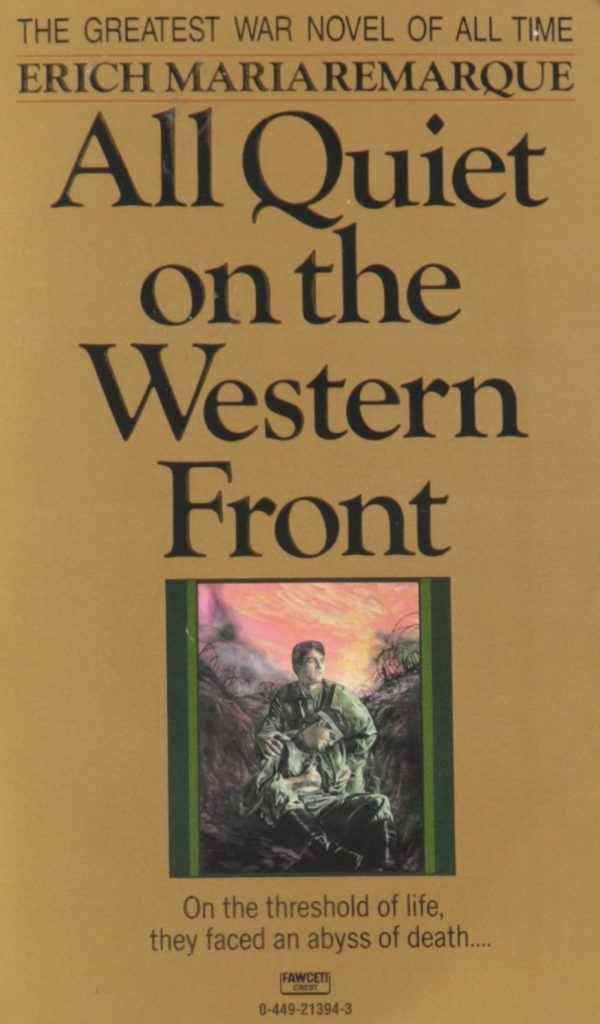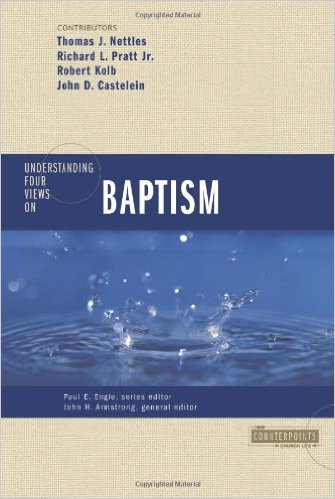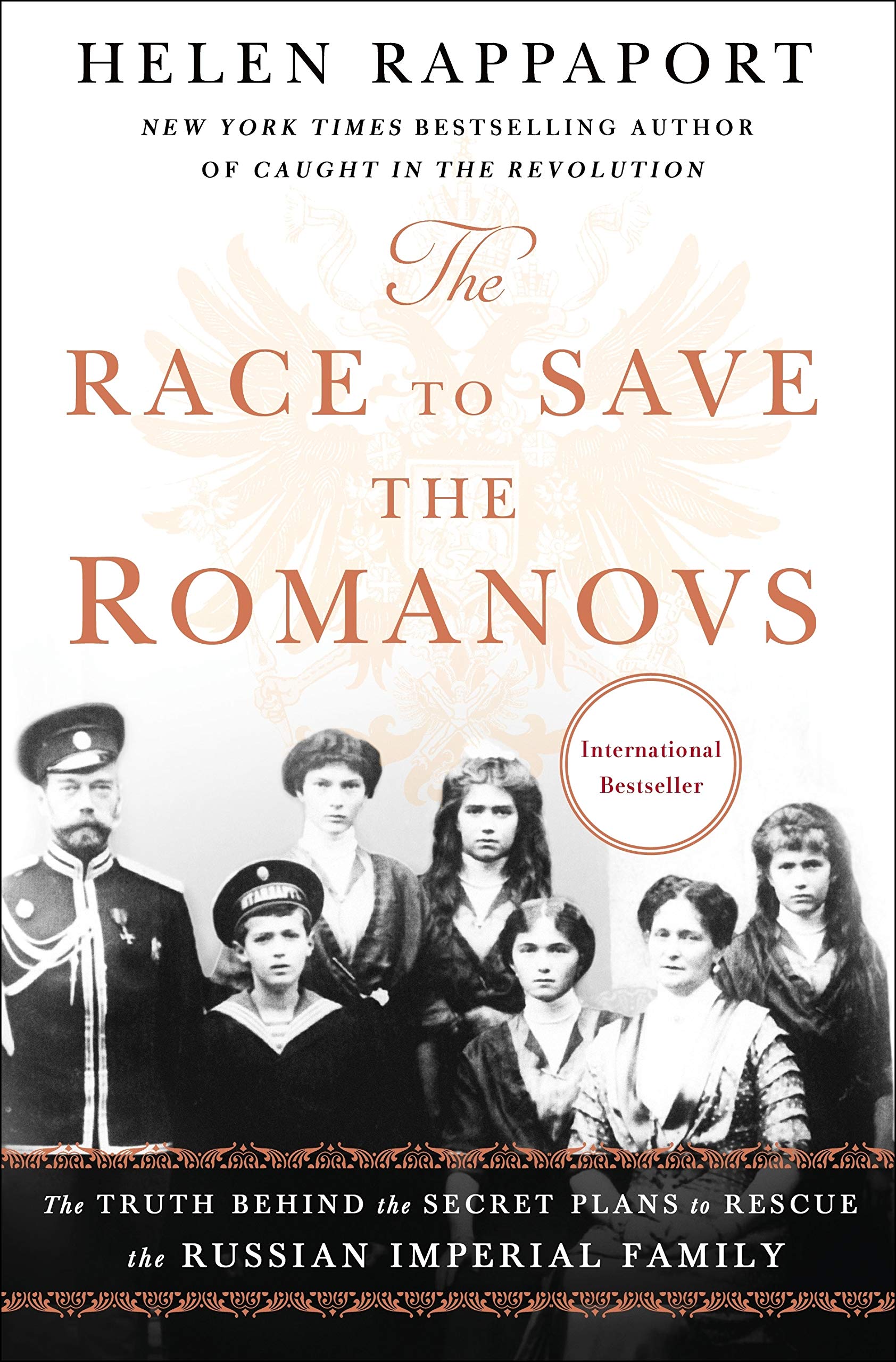All one needs to do to become a pacifist is to read this book and watch Saving Private Ryan! Eric Remarque was like so many other 18 yours olds in 1916 Germany. Sergeants pounded thoughts of duty, responsibility, glory, & victory into his mind as he trained for his turn at the front lines. Those noble thoughts shattered with the first bombardment. Six weeks later, he finds himself stretchered off the line, his body decimated by a shell fragment.
Remarque’s gift to his readers is his ability to strip away any glory or rightness to war. What emerges from his pen is only the naked emotions of soldiers caught in terror and brutality. The soul and body destroying cost of war jump off the page, yet at the same time, he draws us into the humanity and beauty of these young people’s lives. They are simple people with basic aspirations, people who didn’t want to fight, but yet it was their duty to die.
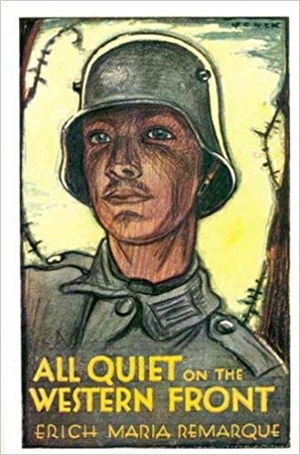
One walks away profoundly dismayed after being swept up in the characters of this book. Questions fly to the front of your mind: Who could ever want this for anyone? Why would we attempt to solve our problems by splattering the body parts of a generation of young people across the fields of France? There has to be a better way!
Hitler fought in the same trenches as Remarque. If only he had read Remarque’s book when it came out in 1927. If only he had drawn the same conclusions. Instead, Hitler’s war experience fuelled an even greater hatred not for war but for anyone who might stand in the way of Germany’s world dominance. When Hitler did come round to reading Remarque’s international best-seller, he declared it Anti-German propaganda and had the book outlawed and burned. Remarque had to flee for his life. He narrowly escaped Nazi clutches; his sister was not so lucky. She was captured and beheaded for the “sins” of her brother.
What do I make of humankind? We read a book like this one, and we are rightly horrified. We swear to learn from our mistakes “never again,” we say to ourselves. That is until some country pisses our country off; until some moron’s actions fill me with “righteous” anger; until some great injustice perceived or real fuels the indignant fire in us all. Somehow we cross a line; justifications for brutality begin. Young men thirsty for a cause and full of testosterone ball up their fists and grab a weapon to meet the threat. It’s time to fight yet again. Will we ever learn? As a historian, I find myself having a hard time being hopeful.
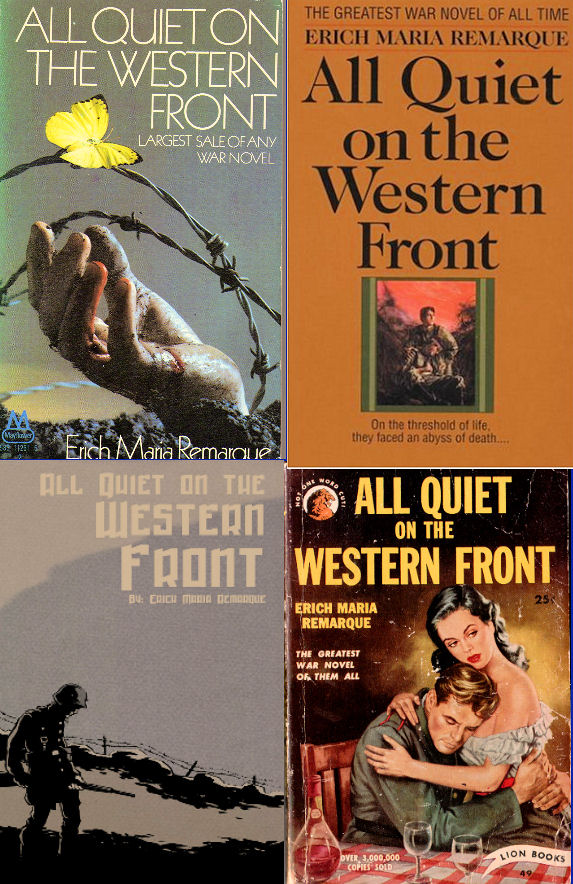
- On small dog syndrome: “It is very queer that the unhappiness of the world is so often brought on by small men, they are so much more energetic and uncompromising than the big fellows.”
- On what it takes to become a good soldier: “We became hard, suspicious, pitiless, vicious, tough and that was good for these attributes are just what we lacked.” – Of course, it’s these attributes that would also ruin their lives if they were ever to survive the war. You lose even if you survive.
- The problem of power: Remarque believes that no human does well with it. He both laments and regularly illustrates in his novel, brutal abuses of power. Surgeons using war wounded as guinea pigs. A commanding officer torturing young soldiers because of a bedwetting issue. He offers no solutions, only that when men arrive at power, the abuses that result are near limitless.
- The true nature of humanity: “In himself, man is essentially a beast only he butters it over like a slice of bread with a little decorum.”
- The end of faith, hope, and love: Remarque’s principal character Paul, came through his injuries and was sent back to the front. He returned to find most of his friends dead or maimed. Those that remained lose their lives one by one until Paul has no friends left. The war was already lost; everyone on the German side knew it, but yet, inadequately armed and manned for the task they are forced to battle on. As he hunkers down alone in a shell hole, he reflects.
“How senseless, is everything that can ever be written, done, or thought when such things are possible. It must be all lies and of no account when the culture of a thousand years could not prevent this stream of blood being poured out, these torture chambers in their hundreds of thousands. A hospital alone shows what war is.”
How does one argue with this? My hope-filled line “believe the better story” rings a bit hollow after reading a book like this one. It doesn’t seem to matter what we believe or what stories we let shape our lives. Humans always seem to fight and kill each other. The book concludes when a sniper’s bullet snuffs out Paul’s life a few days before the end of the war.

